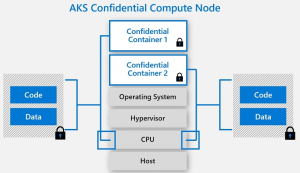
Funding
Stakeholders are pushing for the 5G Fund auction to be postponed until after all BEAD subgrantee awards are finalized.

 Photo of Brian Hurley, chief regulatory counsel to ACA Connects.
Photo of Brian Hurley, chief regulatory counsel to ACA Connects.
WASHINGTON, April 9, 2024 – Another industry association, ACA Connects, asked the FCC Monday to delay the auction of the 5G Fund for Rural America until after states and territories have allocated Broadband Equity, Access and Deployment Program funds in an effort to maximize federal broadband infrastructure funds and avoid duplication.
FCC Chairwoman Jessica Rosenworcel revealed plans to relaunch the 5G Fund for Rural America on March 20, proposing an initial allocation of up to $9 billion to enhance voice and 5G mobile broadband access in rural areas. This revamped initiative also incorporates $900 million in incentives to encourage the adoption of Open RAN technology.

In an ex parte communication, ACA Connects’ Brian Hurley highlights the risks of premature action, emphasizing that initiating the 5G Fund auction before BEAD funds are allocated to subgrantees could result in funds being distributed to areas that would have received 5G mobile service without it.
The association representing small and midsize providers contends that BEAD-funded projects could be leveraged to extend voice and 5G mobile service in areas lacking coverage, potentially reducing the need for 5G Fund support.
Moreover, the delay advocated by ACA Connects offers an opportunity to address lingering concerns surrounding the mobile challenge process and mobile broadband maps, crucial aspects for accurately identifying areas in need of 5G service.
The forthcoming auctions will rely on mobile coverage data that underlies the FCC’s broadband map. Stakeholders are urged to promptly file challenges to the FCC map to ensure the accuracy of data regarding areas in need of 5G service.
Prior to ACA Connects’ communication, numerous other industry groups had pushed for revisions to the proposed 5G Fund.

CTIA similarly emphasized the importance of scheduling the 5G Fund auction after final BEAD program funding decisions to allow the FCC to incorporate influential deployment information, in an ex parte filed March 19.
CTIA cautioned against imposing overly prescriptive cybersecurity conditions or Open RAN mandates that could escalate costs and complexity, potentially deterring participation from smaller providers endeavoring to connect challenging-to-serve regions of the country.
The Open RAN Policy Coalition emphasized the importance of post-auction incentives to encourage Open RAN deployment in an ex parte filed March 13.
By offering these incentives such as additional funding for various phases of the build-out, flexibility in meeting build-out requirements, and technical assistance, the coalition said it believes that winning bidders would be empowered to choose Open RAN solutions, aligning with the commission’s objectives for the 5G Fund.
The Competitive Carriers Association advocated for the FCC to raise eligibility standards to at least 35 Megabits per second download * 3 Mbps upload to better align with global benchmarks, previous FCC precedent, and administration goals.
Additionally, the CCA cautioned against proceeding with a $9 billion budget without sufficient justification, stressing the need for updated analysis to appropriately size the 5G Fund. The association also stressed the importance of using accurate mobile mapping data and a robust challenge process before proceeding with any 5G Fund auction.
The Rural Wireless Association has also engaged in multiple discussions with FCC officials, expressing persistent concerns over the reverse auction model. Under this system, providers would compete based on cost structures for serving areas meeting the minimum required speeds, as stipulated by the 5G Fund.


